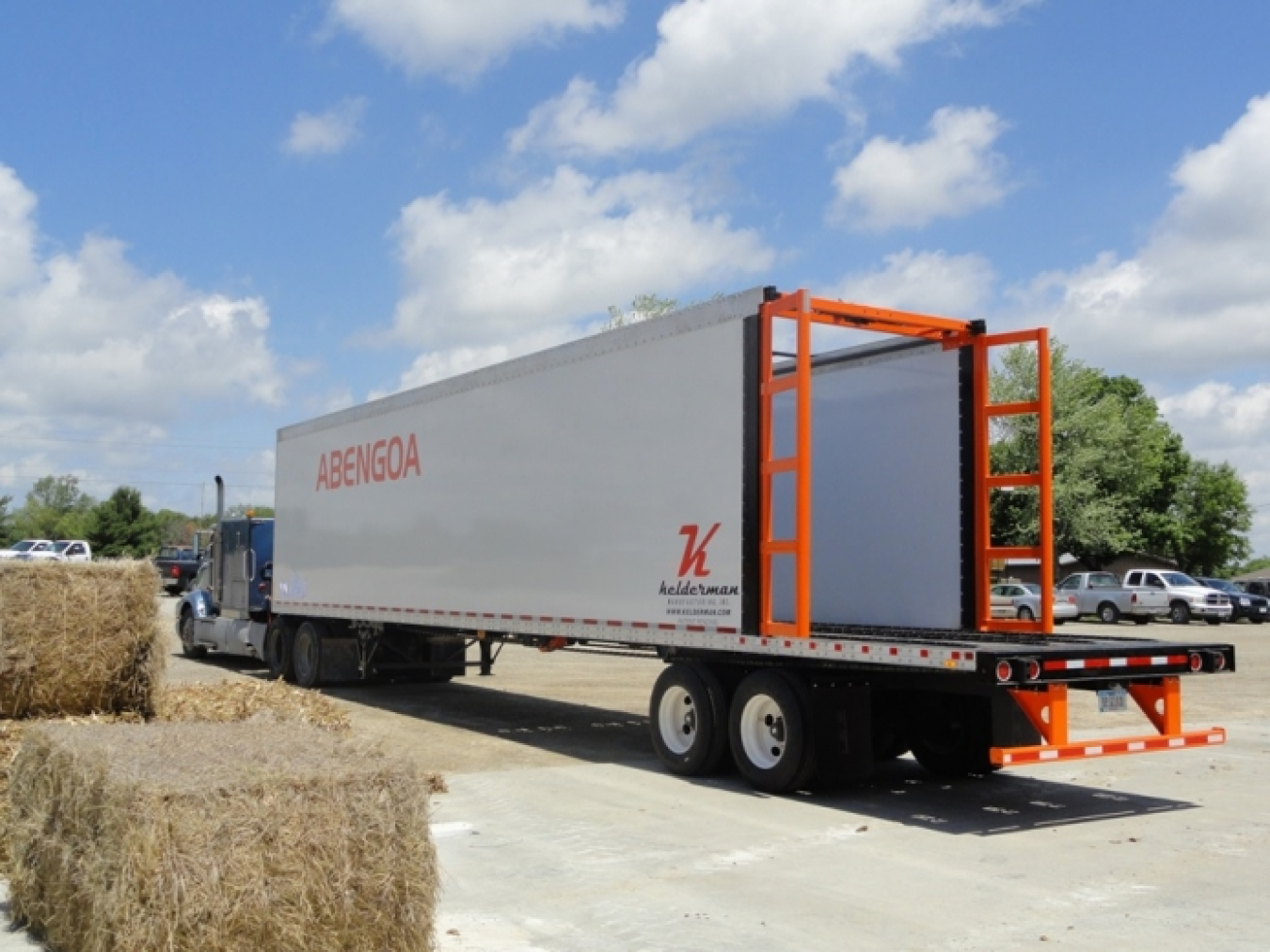
Kelderman Shelf-Loading Trailer | Photo Courtesy: Kelderman Manufacturing
Some of our greatest successes at the Energy Department’s Office of Energy Efficiency and Renewable Energy are when the technologies developed with our funding are purchased and put to use by the private sector. Earlier this year, we highlighted five cost-saving harvesting technologies that private companies and universities developed through $21 million in 2009 funding from the Bioenergy Technologies Office (BETO). At the time, several types of equipment, including Tigerats’ feller buncher, were already available for purchase on the commercial market. As demand grows and the market develops for biofuel made from new, non-food plant sources, farmers and land owners can use these technologies to more cost-effectively harvest and transport plant material (called feedstocks) such as agricultural residue, forestry trimmings, and grasses.
We are excited to announce that one of the technologies, the self-loading trailer, has been purchased by biofuel company Abengoa for use at its biorefinery. The Abengoa Bioenergy Biomass of Kansas biorefinery uses corn stover to produce cellulosic ethanol. Abengoa plans to order 40 more of these trailers, which will help to streamline the moving of truckloads of baled corn husks, stalks, and leaves (the non-food parts of the plant, called corn stover) from the field and temporary storage sites to the biorefinery. The trailers were developed by Kelderman Manufacturing (Oskaloosa, Iowa) in partnership with BETO funding recipient, FDC Enterprises (Columbus, Ohio).
The largest cost for any biorefinery is the feedstock that it converts to fuel. Streamlining the harvesting and transportation process saves time and money, which enables the biofuel, electricity, or chemicals that are produced at the biorefinery to be sold at a more competitive price.
Using conventional machinery, the process to load and unload corn stover bales is time and labor intensive. The self-loading trailer significantly reduces the time required for these operations from 20–40 minutes to around 10 minutes, by more picking up an entire load of 36 stacked bales off the ground at once. The self-loading trailer went through three design, build, and test iterations to attain its current commercialized configuration (pictured above), designed specifically for Abengoa’s biorefinery operations. To get a better understanding of how the self-loading trailer operates, you can view a short video.
The order of 40 trailers is currently in process. Ten trailers per batch will be manufactured and shipped to Abengoa when they are ready. The trailers take approximately three weeks to construct and are commercially available for purchase from Kelderman Manufacturing. The cost depends on features requested by the buyers.
The self-loading trailer and the other recently completed harvesting technologies are critical to enabling a supply system of non-food feedstocks for the biofuel industry. The prices of biofuel from non-food sources need to be lower to compete with fossil fuels, which is why BETO and the private sector are working to lower the cost by improving efficiency in the feedstock supply chain.
At the Energy Department, we have a history of partnering with the private industry to develop technologies, such as the self-loading trailer, that positively impact job creation, reduce operation costs, and which help to enable an economically viable and sustainable renewable biofuel industry in the United States. Learn more about our work at bioenergy.energy.gov.
The Office of Energy Efficiency and Renewable Energy (EERE) success stories highlight the positive impact of its work with businesses, industry partners, universities, research labs, and other entities.
